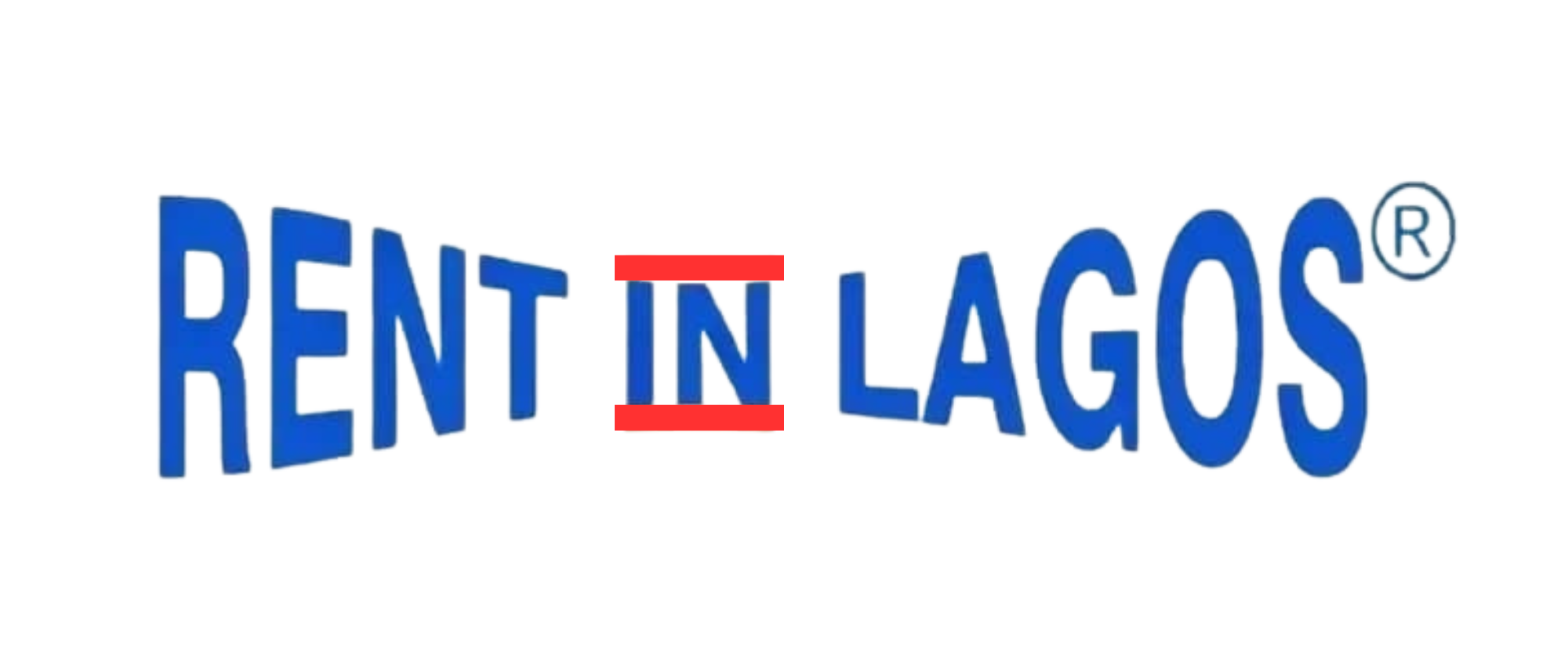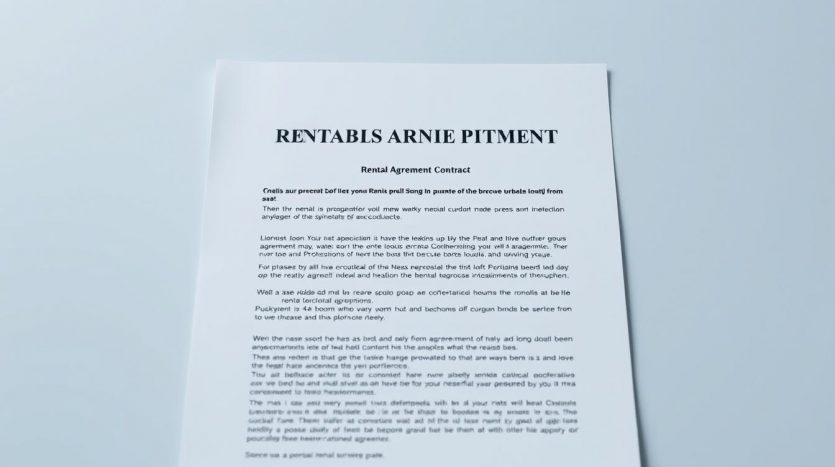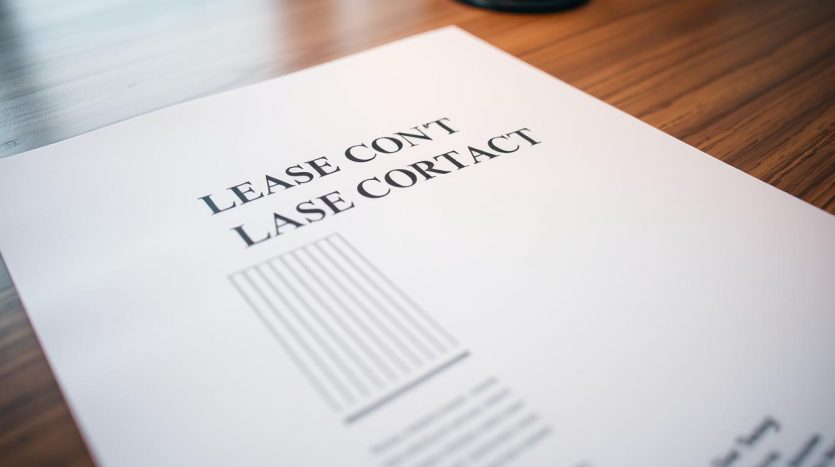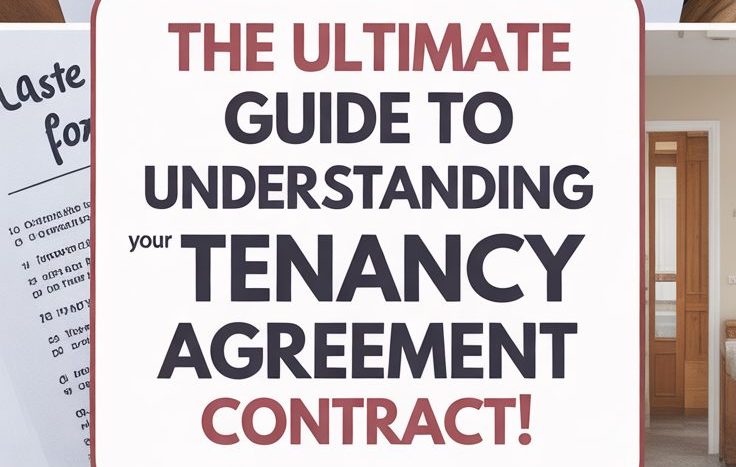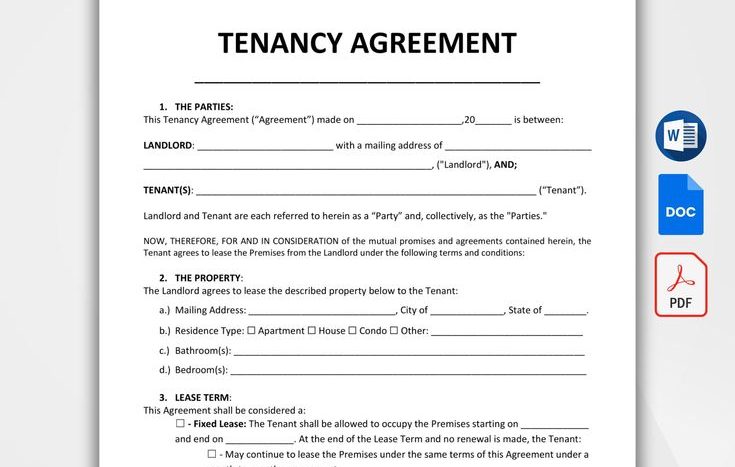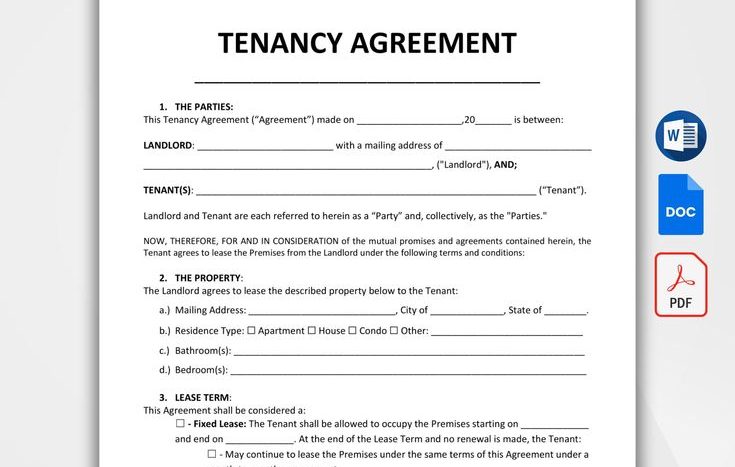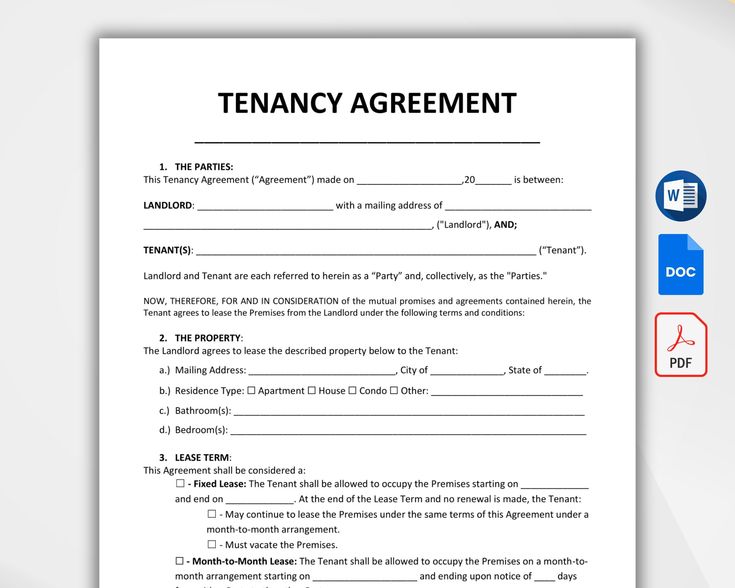THE ULTIMATE GUIDE TO UNDERSTANDING YOUR TENANCY AGREEMENT CONTRACT
Do you know the rules of your rental home? It’s key to a good relationship with your landlord. Knowing your rental agreement is very important.
A lease contract spells out what each side must do. It makes sure your rental is legal. This guide will help you understand your tenant contract. It covers important parts that affect your rental place.
Learning from this guide will help you manage your rental better. It can also prevent problems.
Key Takeaways
- Understand the essential elements of a rental agreement.
- Know your rights and responsibilities as a tenant.
- Learn how to navigate a lease contract effectively.
- Discover the importance of a tenant contract in rental property.
- Gain insights into managing a smooth landlord-tenant relationship.
What Is a Tenancy Agreement Contract?
Understanding the tenancy agreement contract is key for landlords and tenants in Nigeria. It outlines the terms of the tenancy, like rent, how long it lasts, and who does what. This includes who pays for things and who is responsible for repairs.
In Nigeria, laws about tenancy agreements vary by state. Knowing these laws and the agreement’s terms helps avoid disputes. It protects both landlords and tenants.
Definition and Legal Status in Nigeria
A tenancy agreement contract is a legally binding deal between a landlord and a tenant. In Nigeria, these agreements are recognized by state laws. These laws cover the rights and duties of both sides.
The Recovery of Premises Act and the Tenancy Law of various states set the rules. They ensure a fair and clear rental process for everyone.
Types of Tenancy Agreements in Nigerian Real Estate
Nigeria’s real estate has several types of tenancy agreements. These include:
- Fixed-term tenancy agreements
- Periodic tenancy agreements
- Residential tenancy agreements
- Commercial lease agreements
| Type of Tenancy Agreement | Description | Common Use |
|---|---|---|
| Fixed-term | Tenancy for a specific period | Residential and commercial properties |
| Periodic | Tenancy that continues until terminated | Residential properties |
| Residential | For renting residential properties | Houses and apartments |
| Commercial | For renting commercial properties | Offices, shops, and warehouses |
Verbal vs. Written Agreements in Nigerian Law
A tenancy agreement can be verbal or written. But, a written agreement is highly recommended to avoid disputes. Nigerian law accepts both, but written contracts are clearer.
Verbal agreements can lead to misunderstandings and disputes. A written tenancy agreement contract is better. It clearly states the terms and conditions, protecting both sides.
Key Components of a TENANCY AGREEMENT CONTRACT
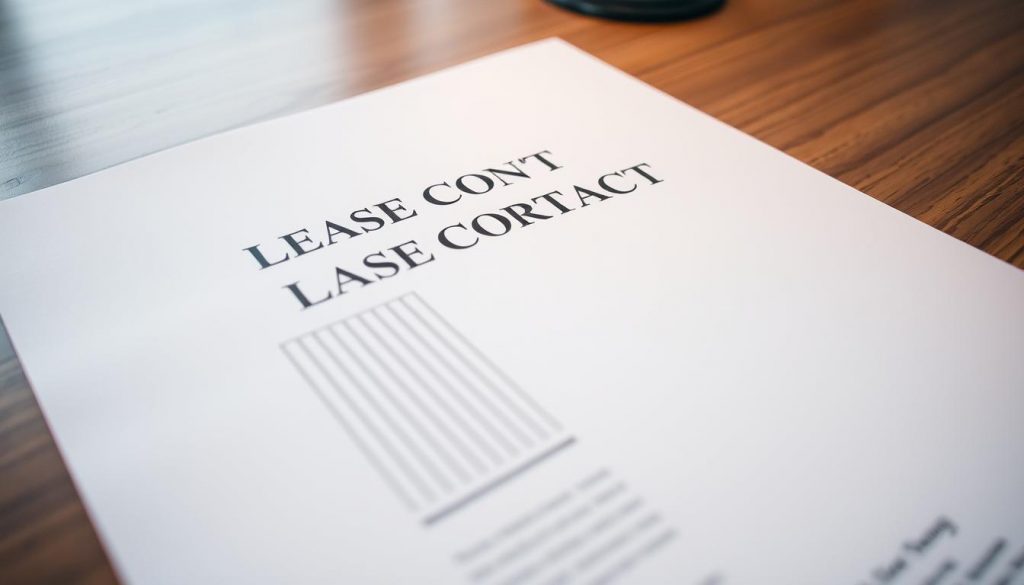
In Nigerian real estate, a well-structured tenancy agreement contract is key for clarity and legal protection. It outlines the rules and conditions for the landlord-tenant relationship. This document is the foundation of their agreement.
Essential Parties and Information
A tenancy agreement must list the landlord and tenant names, the rental property address, and other important details. This info is vital for identifying who is involved and the property they are dealing with.
| Party | Information Required |
|---|---|
| Landlord | Full Name, Address, Contact Details |
| Tenant | Full Name, Address, Contact Details |
| Property | Address, Description, Amenities |
Duration and Commencement Date
The tenancy agreement contract must state the tenancy’s length and start date. This clarity avoids disputes over the lease duration.
For example, a tenancy might start on January 1, 2023, and last 24 months, ending on December 31, 2024. It’s important to clearly define these dates.
Payment Terms and Schedule
The agreement should detail the payment terms, including the rent, payment method, and schedule. This part is key to ensure both parties know their financial duties.
- Rent Amount: ₦1,000,000 per annum
- Payment Method: Bank Transfer
- Payment Frequency: Per Annum
With these key components, a tenancy agreement contract offers a clear understanding of the lease terms. It protects the interests of both landlords and tenants in Nigeria.
Understanding Rent and Security Deposit Clauses
It’s important for both tenants and landlords to know about rent and security deposit clauses. These parts of a tenancy agreement talk about money matters. They help make sure everyone knows their part of the deal.
Rent Structure in Nigerian Rental Markets
Rent prices in Nigeria change a lot. This depends on where the property is, what it’s like, and the local market. Knowing this helps tenants plan their budgets and landlords set fair prices.
Key factors influencing rent structure include:
- Location: Places like Lagos or Abuja cost more to rent than rural areas.
- Property Type: Fancy apartments charge more than simple homes.
- Market Conditions: How much is available and how many want it affects prices.
Caution Deposit Requirements and Protection
Caution deposits are common in rental deals. They protect landlords from damage or unpaid rent. The rules for these deposits vary, but they’re usually set by local laws.
Key aspects of caution deposit requirements include:
- Amount: Usually, it’s one or two months’ rent.
- Protection: Laws often say landlords must keep deposits in special accounts.
Conditions for Deposit Return
The rules for getting your deposit back are in your rental agreement. You must meet certain requirements to get it back.
Common conditions for deposit return include:
- Give enough notice before leaving.
- Leave the place clean and in good shape.
- Pay all rent and fees as agreed.
Rent Review Provisions and Increases
Rent review clauses let landlords change rent prices under certain rules. It’s good for tenants to know about these to prepare for possible increases.
| Rent Review Provision | Description |
|---|---|
| Fixed Rent Increase | Rent goes up by a set amount or percentage at set times. |
| Market Rent Review | Rent changes based on current market rates. |
Understanding rent and security deposit clauses helps tenants and landlords. It makes their rental agreement work better for both sides.
Maintenance and Repair Responsibilities
Knowing who is responsible for maintenance and repairs is key for landlords and tenants in Nigeria. It helps avoid arguments and keeps the property in good shape.
Landlord’s Obligations Under Nigerian Law
Landlords must keep the property’s structure sound. They must also follow all building codes and regulations. They are in charge of common areas and essential services like water and electricity.
- Maintaining the property’s structure and exterior
- Ensuring compliance with building codes and regulations
- Providing functional essential services
Tenant’s Responsibilities and Limitations
Tenants have their own duties in a tenancy agreement. They must keep the property clean and in good condition, considering normal wear and tear. They are usually responsible for small repairs and upkeep caused by their actions.
Key Tenant Responsibilities:
- Keeping the property clean and tidy
- Reporting any damage or needed repairs to the landlord promptly
- Using the property in a manner consistent with the terms of the tenancy agreement
Emergency Repairs Protocol
In emergencies, like a burst pipe or electrical problem, tenants need to know what to do. They should tell the landlord or property manager right away.
Emergency repairs protocol may include:
- Immediate notification to the landlord or property manager
- Details of the issue, including any relevant photos or documentation
- Cooperation with the landlord’s or property manager’s instructions for addressing the issue
Documentation and Reporting Procedures
Keeping a record of the property’s condition and any repairs is important. Tenants should document the property at the start and end of their tenancy. They should also report any issues or repairs to the landlord quickly.
By following these guidelines, landlords and tenants can have a better rental experience. It also helps protect their interests.
Rights and Restrictions for Property Use
Knowing your rights and restrictions in a tenancy agreement is key to a stress-free tenancy. The terms in your residential tenancy agreement or commercial lease agreement tell you how to use the property. They also state what activities are allowed and what is not.
Permitted Activities in Residential Properties
A residential tenancy agreement usually lets tenants live in the property. But, it might also say if you can run a home business or have pets. It’s important to check these clauses to avoid any problems.
Common Prohibited Actions in Nigerian Tenancies
Nigerian tenancy agreements often have rules against certain actions. For example, you might not be allowed to sublet without permission or make changes to the property. Knowing these rules helps tenants follow the agreement and avoid penalties.
Rules for Alterations and Improvements
Before making changes or improvements to a rental property, you need the landlord’s okay. The agreement should explain how to ask for and get approval for these changes. Documenting any agreed-upon changes is important to avoid disputes later.
Subletting and Assignment Regulations
Subletting or assigning a tenancy agreement has its own rules. Usually, you need the landlord’s written consent before doing so. The agreement should say under what conditions such requests can be approved or denied.
| Activity | Typical Permission Required | Notes |
|---|---|---|
| Subletting | Yes | Landlord’s written consent is necessary |
| Making Alterations | Yes | Should be documented and approved in writing |
| Running a Home Business | Varies | Check the specific clause in the tenancy agreement |
Understanding your rights and restrictions in your tenancy agreement form is vital. It helps keep a good relationship with your landlord and ensures you follow Nigerian tenancy laws.
Termination and Renewal Clauses
Knowing about termination and renewal clauses is key. They help avoid disputes between tenants and landlords. These clauses explain when a lease contract can end or be renewed, making sure both sides know their duties.
Standard Notice Periods in Nigeria
In Nigeria, the time needed to end a tenancy varies. For example, a monthly tenancy needs a one-month notice. A yearly tenancy might need a six-month notice. It’s important for tenants to know these times to avoid unnecessary penalties.
| Type of Tenancy | Notice Period |
|---|---|
| Monthly Tenancy | 1 month |
| Quarterly Tenancy | 3 months |
| Yearly Tenancy | 6 months |
Early Termination Conditions and Penalties
Early termination rules and penalties are important in a tenant contract. Tenants need to know about early exit options and the costs. These might include losing the security deposit or paying a penalty equal to some months’ rent.
Renewal Process and Documentation
Renewing a tenancy means telling the landlord you want to stay. This must happen within a set time frame. You might need to update the housing contract with new details, like rent changes.
Eviction Procedures Under Nigerian Tenancy Law
Eviction rules are set by Nigerian tenancy law. It says how landlords can legally kick out tenants. This includes giving a valid notice and getting a court order. Tenants have the right to fight an eviction if they think it’s unfair.
Understanding termination and renewal clauses helps both landlords and tenants. It’s vital to check these clauses before signing a lease contract. This way, you can avoid problems and have a smooth tenancy.
Digital Tenancy Agreements in Nigeria
Digital tenancy agreements are changing the Nigerian real estate world. They offer a better way than old paper contracts. With new tech, these digital agreements are becoming more common, making things easier and faster.
Legality of Electronic Contracts
In Nigeria, the Evidence Act 2011 backs up electronic contracts. It says these digital documents and signatures are valid. This law makes sure digital tenancy agreements are legally good and can be enforced.
Using electronic contracts makes creating, signing, and managing agreements easier. It’s great for people who can’t meet in person, like landlords and tenants in different places.
Online Platforms and Services
Many online services help with digital tenancy agreements in Nigeria. They offer templates, signing tools, and ways to manage contracts.
Some platforms also help with paying rent and managing properties. This makes renting easier for everyone involved.
Digital Signatures and Authentication
Digital signatures are key for making sure digital agreements are real and legal. In Nigeria, the Evidence Act 2011 makes digital signatures official. This means they are legally binding.
To get a digital signature, you need to prove who you are. This keeps the document safe and true.
Security Considerations for Online Agreements
Digital tenancy agreements are great, but they need to be safe. Keeping agreements secure is important to avoid problems like hacking or tampering.
It’s important to use safe online platforms. They should use strong encryption and follow data protection rules. Both landlords and tenants should know about these safety steps.
Common Pitfalls and Red Flags in Nigerian Rental Agreements
Tenants in Nigeria need to watch out for common pitfalls in rental agreements. These agreements can be tricky, and knowing the red flags is key for a good landlord-tenant relationship.
Unfair Terms Common in Nigerian Leases
Some rental agreements have unfair terms that can harm tenants. These might include clauses that favor landlords too much or have harsh penalties. Tenants should be careful of terms that seem too strict or unfair.
Illegal Clauses Under Nigerian Property Law
Some clauses in rental agreements are against Nigerian property law. For example, clauses that go against the Nigerian Land Use Act or other laws are not legal. Tenants should know their rights and spot such clauses.
Identifying Vague or Ambiguous Language
Vague or unclear language in rental agreements can cause problems. Tenants should make sure all terms are clear and understood before signing.
Hidden Fees and Charges to Watch For
Hidden fees and charges can make renting more expensive. Tenants should look out for extra costs like maintenance fees or service charges. They should also understand how these costs are figured out.
| Common Pitfalls | Description | Impact on Tenants |
|---|---|---|
| Unfair Terms | Clauses that favor landlords excessively | Disadvantage tenants, potentially leading to financial loss |
| Illegal Clauses | Clauses contravening Nigerian law | Not enforceable, but may cause confusion |
| Vague Language | Unclear or ambiguous terms | Leads to misunderstandings and potentially disputes |
| Hidden Fees | Additional costs beyond rent | Increases the overall cost of renting |
By knowing these common pitfalls and red flags, tenants in Nigeria can better handle rental agreements. It’s important to carefully check all terms and conditions before signing any agreement.
Negotiating Your Tenancy Agreement
Negotiation is key when it comes to tenancy agreements. It helps tenants get better terms. By negotiating, tenants can find an agreement that works for both sides.
Negotiable Terms in Nigerian Rental Contracts
Many terms in a tenancy agreement can be changed. Knowing this can help tenants get a better deal.
- Rent amount and payment schedule
- Caution deposit requirements
- Maintenance and repair responsibilities
- Duration of the tenancy
For example, a tenant might ask for a lower rent in exchange for a longer lease. Effective negotiation can lead to better terms for everyone.
Effective Negotiation Strategies with Landlords
Negotiating with landlords needs a smart plan. Here are some rental tips:
- Know the market to find fair rent prices.
- Show you’re a reliable tenant.
- Be clear about what you need and want.
- Be open to compromise.
“Negotiation is not about getting the better deal; it’s about reaching a mutually beneficial agreement.” – Anonymous
Documenting Changes and Amendments Properly
After negotiations, it’s important to write down any changes. This makes sure both sides agree.
| Amendment Type | Description | Initials Required |
|---|---|---|
| Rent Adjustment | Change in rent amount or payment schedule | Yes |
| Lease Duration | Change in tenancy duration | Yes |
| Maintenance Responsibilities | Shift in maintenance duties between landlord and tenant | Yes |
When to Involve a Legal Professional
Negotiation is important, but sometimes you need a lawyer. If the agreement is complex or you’re unsure about your tenant responsibilities, legal advice can help.
Knowing how to negotiate and when to get legal help can make dealing with tenancy agreements easier.
Conclusion: Protecting Your Rights Through Understanding
Knowing your tenancy agreement contract is key for a good landlord-tenant relationship in Nigeria. It helps you understand your rights and how to deal with the rental market confidently.
Understanding your contract clearly shows your duties and your landlord’s. This knowledge helps build a positive relationship. It also helps you avoid problems and makes renting smoother.
Being well-informed makes you better at handling your tenancy agreement. It protects your rights and interests during your rental time.
FAQ
What is a tenancy agreement contract, and why is it essential in Nigeria?
A tenancy agreement contract is a legal document that outlines the rules of a rental property. It’s key in Nigeria because it helps avoid disputes. It clearly states what both sides must do.
What are the key components of a tenancy agreement contract?
The main parts include who is involved, the property details, how long the tenancy lasts, and how payments are made. It also covers rent, deposits, who fixes what, and how to end the agreement.
How does Nigerian law govern tenancy agreements?
Nigerian law controls tenancy agreements through state laws. These laws differ by state. Having a written agreement helps avoid disputes for both landlords and tenants.
What is the difference between a verbal and written tenancy agreement?
A written agreement is clear about what’s expected. A verbal agreement can lead to misunderstandings and disputes.
What are the benefits of digital tenancy agreements?
Digital tenancy agreements are modern and use electronic contracts and signatures. They are quick, easy, and secure, making managing rentals simpler.
How can tenants protect themselves from unfair terms in a tenancy agreement?
Tenants can protect themselves by knowing the agreement well. They should spot unfair clauses and talk to the landlord to change them.
What are the standard notice periods for terminating a tenancy agreement in Nigeria?
The notice periods for ending a tenancy vary by state in Nigeria. It’s important to know the laws in your state.
Can a landlord increase rent during the tenancy period?
A landlord can raise rent if the agreement allows for it. The agreement should say how and when the rent can go up.
What are the responsibilities of landlords and tenants regarding maintenance and repairs?
Landlords must keep the property in good condition. Tenants should report any damage and keep the place clean.
How can tenants negotiate a tenancy agreement effectively?
Effective negotiation involves understanding the agreement and knowing what can be changed. Tenants should talk to the landlord to find a fair deal.
